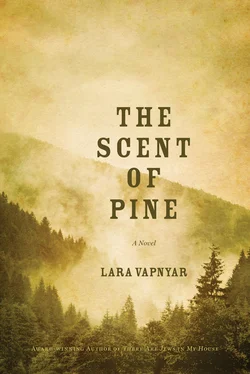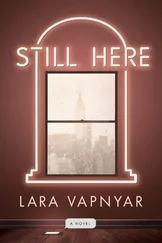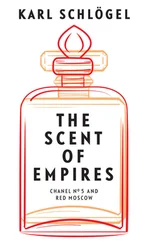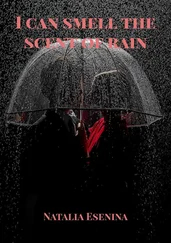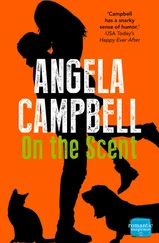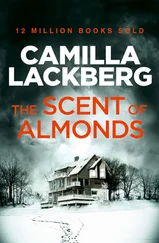There was something frantic about the way they talked. As if they felt that they must hurry, that it was absolutely necessary to spill all these things without wasting a second. But there was also a sense, not a sense but a vague prickly awareness, that the things that they said to each other didn’t really matter, that underneath all that talking something else was going on between them, something far more important and urgent.
They both started when they heard the call for afternoon snack.
“Is it five?” Danya asked. “I have to get back.”
“Okay,” Lena said.
He looked at her as if he didn’t know what to say next.
“You’re not like other girls. I like that. I like you a lot.” He reached over to hug her. His fingers were very strong, Lena could feel them pressing hard into her back. She turned up her face, and he kissed her with such giddy force that they swayed.
Lena was too stunned to feel anything during the kiss, but afterward whenever she evoked the sensation, it made her dizzy with desire.
“Tomorrow night, okay?” Danya said.
She agreed, without even asking what he meant.
And over the past couple of days, Lena thought, there was something similar in the way Ben and she talked. Not that the things they said to each other weren’t important, but the fact that they were sharing them at all had more significance.
Lena’s teeth started to chatter. She must have been swimming for a long time. She got out of the lake and ran to wrap herself in the towel.
When she got back to the cabin, Ben was already up and dressed. He sat crouched by the fire ring lighting a new fire for their breakfast. The air smelled of burning logs and oranges. The juicer lay on the grass by the fire ring, several halved oranges beside it on a paper towel.
“Hi!” she said.
He said: “Good morning. Get dressed, and get ready for the best breakfast you’ve ever had.”
But when Lena returned, Ben was still struggling with the juicer.
“I don’t know what’s wrong with it—it’s stuck.”
He tried to pry it open with a knife, but it wouldn’t yield.
“Oh, come on!” Ben said and, in a burst of energy, threw the thing into the lake.
“Ben!” Lena moved toward the lake as if she could somehow save it, but he put his hand on her arm. For a moment they both looked out in silence at the spot where it had disappeared beneath the surface.
“Yeah, just like that,” he said, “a huge chunk of my past is gone.”
Lena was sad for him, until she began to wonder if it wasn’t such a bad idea to be getting rid of some cumbersome chunks of one’s past.
They sliced the oranges and ate them like that. Then they toasted some bread over the fire, and ate it with butter and jam. Juice or no juice, Lena had to agree that this really was the best breakfast she had ever eaten.
Then they went for a walk along the path that crept around the lake.
The fog had finally lifted, and splashes of sunlight brought the woods into focus with painful intensity. The blue lake. The different shades of green on the opposite bank. The sharp white of the birch trunks. Silvery cobwebs quivering in the sun. The birch branch that bent over the lake in an arch. The clear water. The glistening boulders on the bottom.
The air became heavy, and it seemed like it was pressing down on their shoulders.
“It’s going to rain,” Lena said. “Don’t you think it’s going to rain?”
“I don’t know.”
They headed toward the north shore of the lake, where the woods were dense with pine trees. Tiny beads of water stuck to every single needle. The beads were not glittery at all, and not transparent, but milky, opaque. The air smelled like wet pines, like pines and lake, and in her mouth it tasted like pines and lake too, tangy and fresh.
Ben put his arms around her shoulders and held her close. He smelled just like the woods, though maybe it was his clothes, saturated with the smells of the cabin.
“Will you tell me about Danya?” Ben asked.
Lena started: “Danya? Why?”
“He was the third guy that disappeared, right?”
She said, “No, Sasha Simonov was the third.”
“Sasha?”
“Yes, Sasha, the crazy little boy from my unit. The one that had vomiting fits.”
“Oh, yeah, I remember.”
“It happened during Parents Day.”
Lena looked at the trunks of the pines. No two looked alike—she had never noticed that before. Some were pleated, some scaly, some cracked like dried soil, some stripped of bark, bald and yellow. So huge, so strong, yet strangely vulnerable, capable of feeling pain. They looked amazingly like the pines at the camp.
“Parents Day started with a frantic search for clean clothes.
“ ‘You have to remember three things,’ Yanina told us. ‘Make the parents feel welcome, make sure they see that you care about their kids, and make the kids wear clean clothes.’
“Inka and I spent the whole morning rummaging in the kids’ suitcases, digging through the clothes that, by this stage in the summer, were so dirty they stuck together, trying to find something that was at least moderately clean. Having made our choices, we had to scrub the dirty spots with our fingers. Inka was angry at Yanina for making us do it, but I didn’t mind. I was going on a date with Danya later that night, and I was so nervous that I was grateful for any distraction.
“The kids didn’t look much cleaner than their clothes. We debated whether we should make them take showers, but we decided it would be too much trouble, and anyway, if the parents wanted their kids to be clean, they shouldn’t have sent them to summer camp. Before the parents arrived, we looked them over one last time and declared them fine. In any case, they looked much better than the kids from the adjacent unit, who had filled the empty crate with dirt and claimed that it was a sandbox.
“Of course, the first thing that the parents did was to try and scrub their kids clean. Most of them arrived on three buses at about the same time. They marched from the gates to the units, where the kids had been waiting like overexcited puppies. They hugged and kissed their squealing kids, and then, almost right away, the mothers knelt down and started cleaning them. In a pretty close reenactment of how we’d just spent our day, they rubbed the dirty spots on the kids’ shirts between their fingers, tried to wipe their knees, or spit on their handkerchiefs and rub their faces. All the while throwing reproachful looks at us. And some of them even pulled clean shirts out of their bags and make the kids change right on the spot.
“After that we took the parents along with the kids on a tour of the grounds. We had been taught to introduce the buildings in a positive light. Like ‘Our cafeteria, where they prepare all meals from scratch, all fresh and healthy.’ Or ‘This is our beautiful swimming pool, the kids will start swimming soon.’ But the kids, of course, wouldn’t let us talk. They wanted to be the ones to describe everything. ‘This is where we eat, they give us cubes of butter on a plate, they never give us extra compote.’ Or ‘See this boy? It’s Sasha Simonov—he puked all over me the other day!’ or ‘That’s where UFOs land. Yes, they do. Yes, we’ve seen them! They hit one girl on the head, her brains oozed out of the hole!’
“Everybody was getting ready for the main activity of the day—stuffing the kids with food that the parents had brought. My eyes popped when I saw the parents open their bags and spread the contents on the picnic tables or, in some cases, right on the grass. Boiled eggs, salami, cheese, potatoes, pickles, pies, cakes, whole roasted chickens, canned meat, canned peaches, fresh peaches, cherries, watermelons, caviar, chocolate, and, of course, candy. Tons and tons of candy.
Читать дальше
